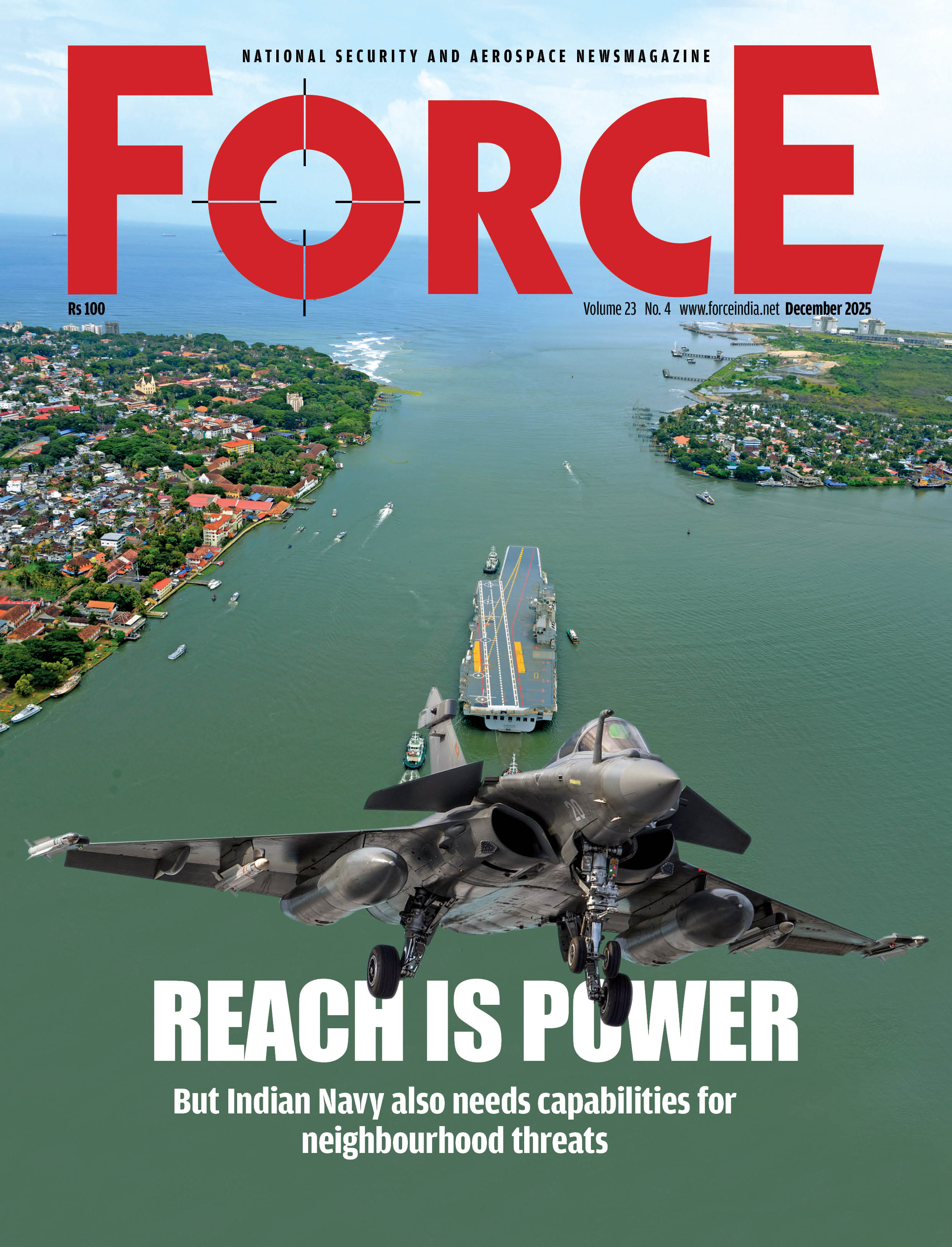The Show Stopper
A FORCE Report
.jpeg)
Despite the inaugural address by the chief of defence staff (CDS), General Anil Chauhan and the plenary session by defence minister Rajnath
Singh, the newsmaker of the first tri-service seminar on war, warfare and
warfighting, ‘Ran Samwad’, at
the Army War College in Dr Ambedkar Nagar (formerly Mhow), was chief of air
staff (COAS) Air Chief Marshal A.P. Singh. Given that the subject of the
seminar was ‘Impact of Technology on Warfare’, perhaps, it was only fitting
that the service with the maximum infusion of technology should take the lead.
In a fireside conversation with retired army commander, Lt Gen. Raj Shukla,
Singh said of the military reforms, five years in the making since General
Bipin Rawat was elevated as India’s first CDS in January 2020, that the
government must not push the armed forces into the theaterisation plan. Instead
of picking any global model that may not be relevant in the Indian context, the
government must consider setting up a joint planning and coordination centre
under Chiefs of Staff Committee in Delhi and decentralise execution.
In an exceptional loyalty towards his command, he added that, “We can start with this first, implement it and see how it pans out. If
we need any more structure, we can think about it. But disrupting everything
and making one structure now at this time, I do not think it is a good idea.” Singh’s
spontaneous comments pointed towards two issues. One, even five years after the reforms were first introduced, there is
lack of agreement within the services about theaterisation. And two, the much
touted ‘jointness’ among the services is nothing more than operational
coordination.
The government was so embarrassed by the air chief’s comments that the following day, not only the chief of naval staff (CNS), Admiral Dinesh K Tripathi said theaterisation was “the ultimate goal”, the CDS himself was at pains to explain that nothing will be
Subscribe To Force
Fuel Fearless Journalism with Your Yearly Subscription
SUBSCRIBE NOW
We don’t tell you how to do your job…
But we put the environment in which you do your job in perspective, so that when you step out you do so with the complete picture.







